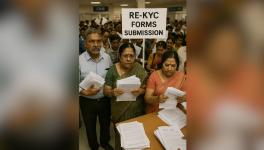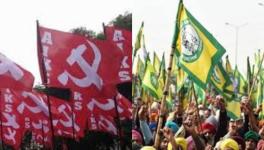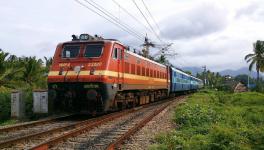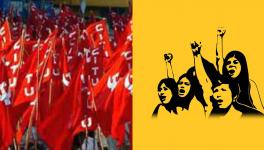Finances of Indian Railways Continue to Go Downhill
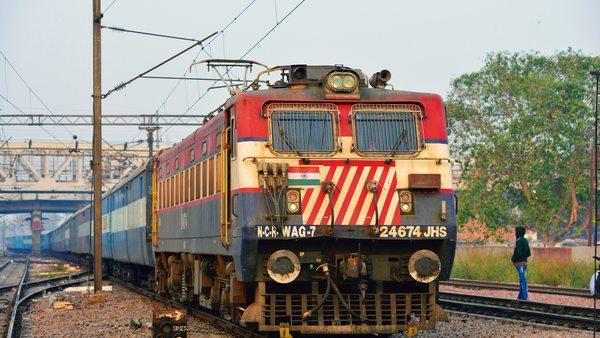
Image for representational use only.Image Courtesy : Livemint
New Delhi, Dec 17: As the year draws to an end, financial condition of Indian Railways is still shaky with the earnings well below expectation—with a shortfall of over Rs 21,000 crore by the end of November.
With passenger and freight sector not showing buoyancy and Railways’ finances going downhill, Finance Minister Nirmala Sitharaman's announcement of 5 trillion economy during the last Budget seems to be in jeopardy, as the Railways is a significant contributor to the economic growth in the country.
The total earnings for the first eight months of the current fiscal was Rs 1,14,197.94 crore as against the target of Rs 1,36,026.22 crore, which is an indication of a grave problem at hand for the national transporter.
With Budget slated to be presented in just one and a half months, the ordinary working expenditure for April-November period is also exceeding by Rs 4398.56 crore, exposing the flaws in expense control mechanism. The expenditure touched Rs 1,13,105.23 crore as against the aim of Rs 1,08,706.67 crore.
The Union Budget, which includes Railway Budget, is likely to be presented on February 1, 2020 and one has to see how the Railways will manage its spiralling operating ratio in the budget. Railways’ operating ratio is kept at 95% for the 2019-20 Budget.
In its latest report, the CAG has noted that the Indian Railways posted its worst operating ratio in 10 years in the financial year ending March 2018. It has observed that Railways’ finances would have been extremely poor in the 2018-19 fiscal if it wasn’t the advance payment by other public sector units like NTPC and IRCON to the national transporter.
Currently, the operating ratio, an indicator for Railways’ surplus earning, is well above the 100% per cent mark which is not a healthy sign. Operating ratio indicates how much Railways spends to earn a rupee. A lower figure of operating ratio is thus regarded better and is indicative of better financial health of the system. An operating ratio of 95% would mean that Railways is spending 95 paisa to earn 100 paisa. Operating ratio can be decreased by reducing expenditure and augmenting income and efficiency. Income can be increased by raising fares as well as expanding revenue streams.
Time has come where Railways should seriously explore ways to increase its non-fare revenue and not depend upon freight rate and passenger fares only, said a senior Railway Ministry official.
According to the Railways, since the road infrastructure has improved a lot, now passengers are not only opting for short distance and day-long travel by road but are embarking upon even long and overnight journeys.
Besides, the airfare connecting metro cities becoming competitive, many passengers are taking advantage of the flexi-fare system.
With freight rate quite high and alternative transportation model available, many customers are giving a miss to the age-old rail-based system.
The earnings from both freight and passengers are way behind the budget projection, which means the Railways has to give a serious thought to augmenting its resources to meet the market demand.
Income is showing a steady decline with a shortfall of over Rs 17,000 crore in this period—an alarming situation indicating it is no longer a preferred mode of transportation for bulk items.
Railways have earned Rs 71,800.20 crore during the April-November period in freight as against the target of Rs 89,442.11 crore, marking a decrease of Rs 17,641.91 crore.
Freight revenue was Rs 9067.03 crore for the month of November this year as compared to Rs 9915.59 crore for the same period last year.
Passenger earning was Rs 35,254.05 crore as against the target of Rs 37,237.27 crore, with a shortfall of Rs 1983.22 crore, despite the commencement of festive season and pressing of several special trains into service to cater to the excessive crowd.
Besides rationalising the rates, the need of the hour is to speed up the trains to reduce the travel time considerably by decongesting the routes and also putting in place an effective expenditure curbing method.
Also read: Indian Railways Crawls on Slow Lane Amid Economic Slump
The writer is an independent journalist and can be contacted at akdas2005@gmail.com.
Get the latest reports & analysis with people's perspective on Protests, movements & deep analytical videos, discussions of the current affairs in your Telegram app. Subscribe to NewsClick's Telegram channel & get Real-Time updates on stories, as they get published on our website.












